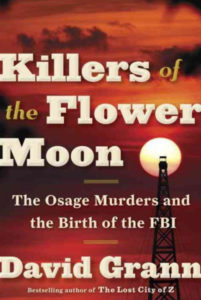“Prince-elector, I’m not aware of that.”
April 14, 2018Duke of Saxony: Well, if so, how do you sustain a business model in which users don’t pay for your service?
Gutenberg: Prince-elector, we print indulgences.
Highlights From the Gutenberg Hearings
An empire’s potentates size up the risks of new technology
By Andrew Kahn
[slate.com]
Archbishop of Cologne: Let’s say I’m communicating with my friends using a printing press and indicate that I love a certain kind of chocolate. And all of a sudden I start seeing, all along the edges of my Bible, little decorations about chocolate: Jesus eating chocolate, apostles wrestling a bar of chocolate, a big letter A covered in flowers made out of chocolate. What if I don’t want to receive those illuminations?
Gutenberg: We’re considering letting users pay a small fee not to see the chocolate.
Trier: But consider if someone in another country—like Saxony, for example—if a man—a large, 400-pound man in Saxony—he hacked your pringus to put out papers with, written on the documents, the pope’s worst mistake and then he asked the devil to convince everybody, using these fake propagandas, to convince them against the pope?
Gutenberg: Prince—
Trier: And then we get the gosh-darned Thirty Years’ War.
[Gutenberg blinks.]
Brilliant. Full article:
https://slate.com/technology/2018/04/if-the-zuckerberg-hearing-were-the-gutenberg-hearing.html
Just ‘playing through’ the apocalypse.
The Decemberists’ Shiny, Happy Protest Album
“There’s something therapeutic in looking at the apocalypse and laughing,” Colin Meloy says of the band’s I’ll Be Your Girl.
Spencer Kornhaber
[Excerpt from interview with The Decembrists’ Colin Meloy in The Atlantic]
Kornhaber: I saw you called the album an “apocalyptic dance party,” which feels like a term that could describe a lot of albums lately.
Meloy: We’re having a very shared experience. It’s almost galvanizing, people coming out of the woodwork and saying, “Shit is fucked up.” There’s something therapeutic in looking at the apocalypse and laughing.
I was hearing a story about that incident in Hawaii when a false missile alert came down. There were a couple guys on a golf course whose phones went off at the same time, and they went through how much time they had, where they could go, what they could actually accomplish. And they came to the conclusion that the best thing they could do is continue playing golf. There was nothing else they could do. That, in some ways, is a shared experience in this country right now.
Kornhaber: That story sounds like a future Decemberists song topic. But there’s a capitulation in it, right?
Meloy: Obviously the golfers in Hawaii is not analogous to our current predicament. It is a thought experiment: The apocalypse is 10 minutes away; what really can you do? If you want to talk literally, I don’t think we are in that dire circumstances. Responding to that intuition to shout out that things are broken is some way forward. We’re not leading the charge, but it feels good to lend our voices to that ever-growing chorus of people who are saying, This is not right.
Kornhaber: How much do you want this read as a Trump album?
Meloy: I don’t think I set out to make an overtly topical or political record. The songs just came from where we were and where my head was at in the last year and a half. I didn’t want to go too over-the-top. For one thing, I don’t know that I feel like the white straight-male voice is really the voice that needs to be amplified right now, or necessarily be the one singing protest music. There is powerful and topical music to be made by those communities who are oppressed. I don’t think it’s necessarily my place. That said, you can’t help but have some of that stuff just come through the cracks as you’re working.
Full article:
Restructuring the narrative.
5 Indigenous Women Asserting the Modern Matriarchy
They’re reclaiming the tradition of female leadership and turning the old, white, male-dominated perspective of history on its head.
It is precisely because this historical narrative is biased that righting this wrong isn’t as simple as cherry-picking the names of notable Native women and inserting them into textbooks or other media. In order to truly improve public understanding of important indigenous women in history, the entire narrative has to be restructured. And who better to do that than Native women themselves?
Today, contemporary indigenous women are taking the matter into their own hands and showing the public how to rethink, reframe, and relearn a new American-Canadian story that seamlessly incorporates the voices of indigenous women. These women are living in the tradition of their ancestors, whose societies and nations were often matriarchal. They are reclaiming the tradition of female leadership and turning the old, white, male-dominated perspective of history on its head.
The following are five Native American and First Nations women who are using their platforms in such profound ways that they are also, in a sense, making history.
Follow link:
http://www.yesmagazine.org/peace-justice/5-indigenous-women-asserting-the-modern-matriarchy-20180330
_______
Mountain West News Bureau
Nate Hegyi
“The data breach prompted a “Delete Facebook” movement that hasn’t really gained any traction.
That’s especially true in the Native American community, where Facebook is much more than sharing cat videos or keeping in touch with friends and family.
Social media is vital in Indian Country. It helps connect communities and reservations that are scattered across North America. Many are in rural, isolated places that don’t get a lot of attention from national media outlets.
Places like Pablo, a small, one-highway town in northwest Montana where Patrick Yawakie goes to college. He was an organizer for Native Lives Matter a couple years ago.
And in Indian Country that message can also be about mundane things — from community classes to bike donations and fundraisers. And then there are public service announcements that can actually save lives.
When a bad blizzard caused a state of emergency on the Blackfeet Reservation in Montana, people used Facebook to warn which roads were closed and to get food to needy families.
But as much as she loves Facebook, Lamb said indigenous communities would find other ways to get in touch and organize if it disappeared. She pointed to the founding of the American Indian Movement in the late 1960s.
“They didn’t have Facebook and I think they got a lot of things done,” she said. “So they would obviously adapt and change to the world and find a way. There’s always a way.”
Full article:
______
NPR
“A true account of the early 20th-century murders of dozens of wealthy Osage and law-enforcement officials, citing the contributions and missteps of a fledgling FBI that eventually uncovered one of the most chilling conspiracies in American history.”
“In his new book, Killers of the Flower Moon, David Grann describes how white people in the area conspired to kill Osage members in order steal their oil wealth, which could only be passed on through inheritance. “This was a culture of complicity,” he says, “and it was allowed to go on for so long because so many people were part of the plot. You had lawmen, you had prosecutors, you had the reporters who wouldn’t cover it. You had oilmen who wouldn’t speak out. You had morticians who would cover up the murders when they buried the body. You had doctors who helped give poison to people.”
Steve Inskeep and author David Gann:



